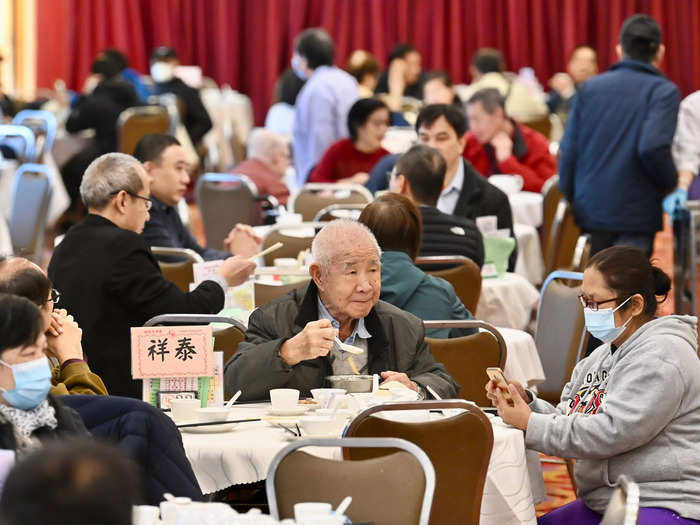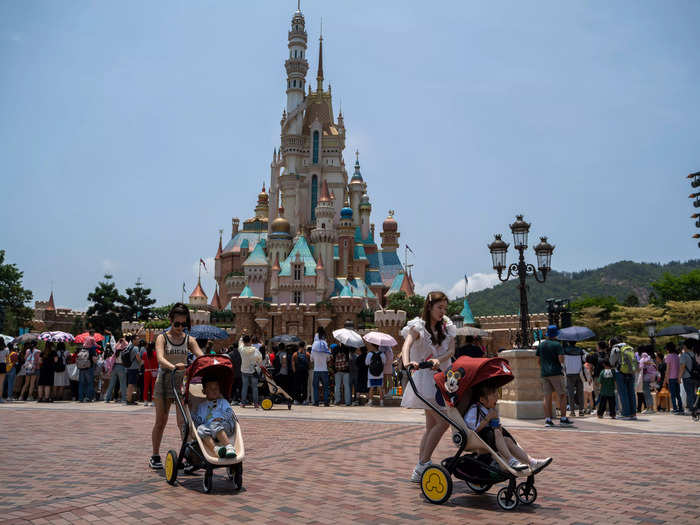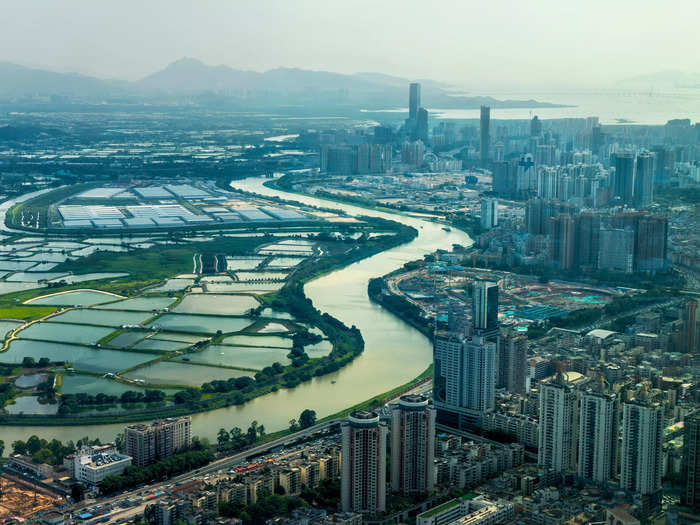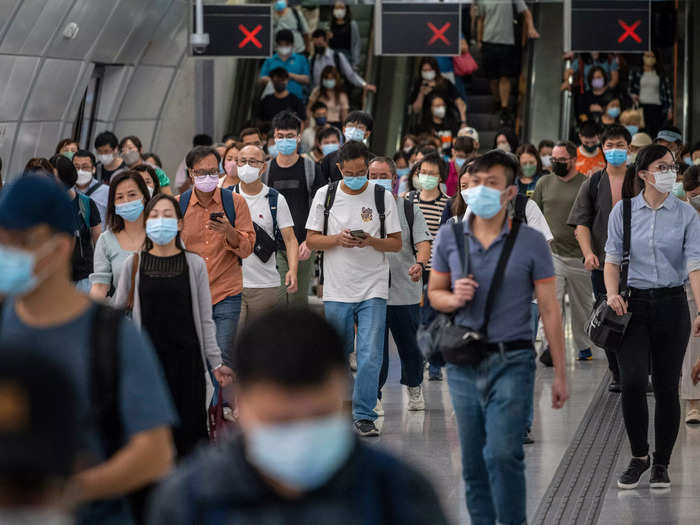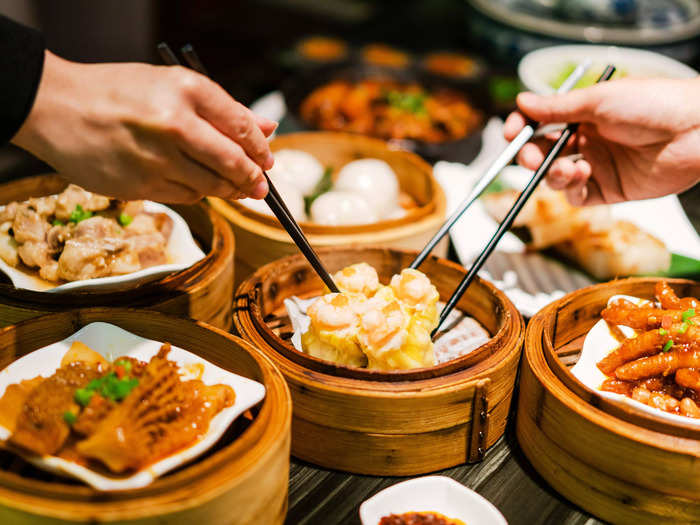Liz Weselby (left) and a friend in Hong Kong.Courtesy of Liz Weselby
- Liz Weselby, a UK native, has lived in Hong Kong since 2015.
- Over the years, she's grown accustomed to the unique cultural nuances in the city.
This as-told-to story is based on a conversation with Liz Weselby, the managing director of Archetype Hong Kong, a marketing agency. It's been edited for length and clarity.
Hong Kong is home to some seven and a half million people. It's a special administrative region of China, located in the southern part of the country. Hong Kong is also a metropolitan city where you can find some of the most amazing landscapes, from beaches to mountains.
Hong Kong is also one of the most visited cities in the world. In 2019, some 55 million people, many of whom come from mainland China, visited the city. It's a melting pot of many different nationalities, with over 845,000 expats living in Hong Kong in 2020.
I'm a native of the UK and have lived in Asia for 20 years. I moved to Hong Kong for a job opportunity in 2015. Before moving to the city, I lived in Bangkok and Singapore. I found Hong Kong lively, dynamic, and diverse with so much to explore, so it felt like a great fit for my husband and I.
Hong Kongers are flexible and understanding when it comes to foreigners, but there are still a few things tourists should be mindful of when visiting the city.
Here are six things tourists shouldn't do when they visit Hong Kong.
1. Sticking to an itinerary that only revolves around Hong Kong's city center.
Islands and mountains in the outskirts of Hong Kong. chun kit wong/Getty Images
Tourists shouldn't limit their travels to just Hong Kong island. Before moving here, I stuck to places like Central and Soho whenever I visited Hong Kong, like many tourists from the West. But I realized that most of what's great about the city is on the other side, in Kowloon and the New Territories.
While Hong Kong is known for its towering skyscrapers and gleaming skyline, there are over 200 islands that make up the territory. This means that you can explore everything from rugged mountains to gorgeous beaches. It's worth exploring wider Hong Kong, up to the border with mainland China, where you can see the villages and the countryside beyond the island and harbor.
2. Avoid "losing face", so be extra careful of pointing out negative things about yourself or others.
People in Hong Kong dining at a dim sum restaurant. China News Service/Getty Images
Face or "miànzi" is an important part of Chinese culture. It refers to the cultural practice of being careful of other people's social standing and honor.
One way to cause someone to lose face is to point out negative things about others. For example, if you're at a lunch or dinner, you shouldn't say anything about another person that would cause them to feel shamed or embarrassed. In the same vein, face is also about maintaining your own honor and social standing.
It's also inappropriate to be loud and boisterous or express strong emotions in public. For example, if you're in a slow-moving queue, you should contain the frustration you feel as it's seen as inappropriate, and locals feel that it doesn't reflect well on you.
3. Don't travel to Hong Kong just to spend a day or two at Disneyland.
Families on a day out in Hong Kong Disneyland in April 2023. Vernon Yuen/NurPhoto via Getty Images
Hong Kong's Disneyland was the first Disney theme park to open in China, and remains one of the most popular attractions in the city. Some 5.7 million people visited the park in 2019.
If you've got kids, it's worth going — but I wouldn't fly to Hong Kong just to go to Disneyland. There are many activities parents can do with their kids in Hong Kong. For example, there's Ocean Park, Hong Kong's oldest operating theme park. It was recently joined by Water World, a fantastic new theme park. Both parks are also great places for adults to visit.
Overall, if you love Disney or enjoy going to theme parks, it's an activity to consider, but pack your itinerary with other destinations too.
4. Be mindful of expressing your political opinions.
The Shen river border between mainland China and Hong Kong. Guang Cao/Getty Images
Hong Kong was once a British colony, but has been a special administrative territory of China since 1997. Despite sharing a border, there are cultural differences between HK and China.
Hong Kong has a delicate and complex political situation, and people in the city can have extremely different views. Tourists should also be careful of expressing an opinion on politics in Hong Kong and mainland China, whether it be among people they know or on social media.
5. Refrain from sneezing in public without a mask.
Commuters wearing face masks walking to the platform inside an MTR Station in Hong Kong, China. NurPhoto/Contributor/Getty Images
The city's largely moved on from Covid-19 restrictions, but many locals still feel uncomfortable not wearing a mask. While it's not mandatory to wear masks in Hong Kong, locals feel it's more hygienic to do so.
If you're a tourist traveling on public transport or walking out and about in the streets, you'll notice that while most locals wear masks, they don't expect foreigners to follow suit. But if you're sneezing or have a cold, it would be common courtesy to mask up, to avoid spreading germs in public spaces.
6. Don't expect Hong Kongers to slow down their lunches for you.
Cantonese food in Hong Kong. Vivien.x.Li/Getty Images
In the West, eating lunch or dinner can be a leisurely affair. But in Hong Kong, many people eat meals quickly, and even at special occasions like wedding banquets and Chinese New Year lunches, there's no lingering over a meal!
Dining etiquette is important in Hong Kong. When eating food with other people, there will be two sets of chopsticks: one that you use for your own food, and one that is used to pick up food from shared plates. The two should never be used interchangeably.
It's typical to serve food to other people and not just yourself. For example, if you pour yourself a cup of tea, you should pour some for another person too. Finally, locals consider it polite to leave a morsel of food at the end of a meal and not to eat everything.


